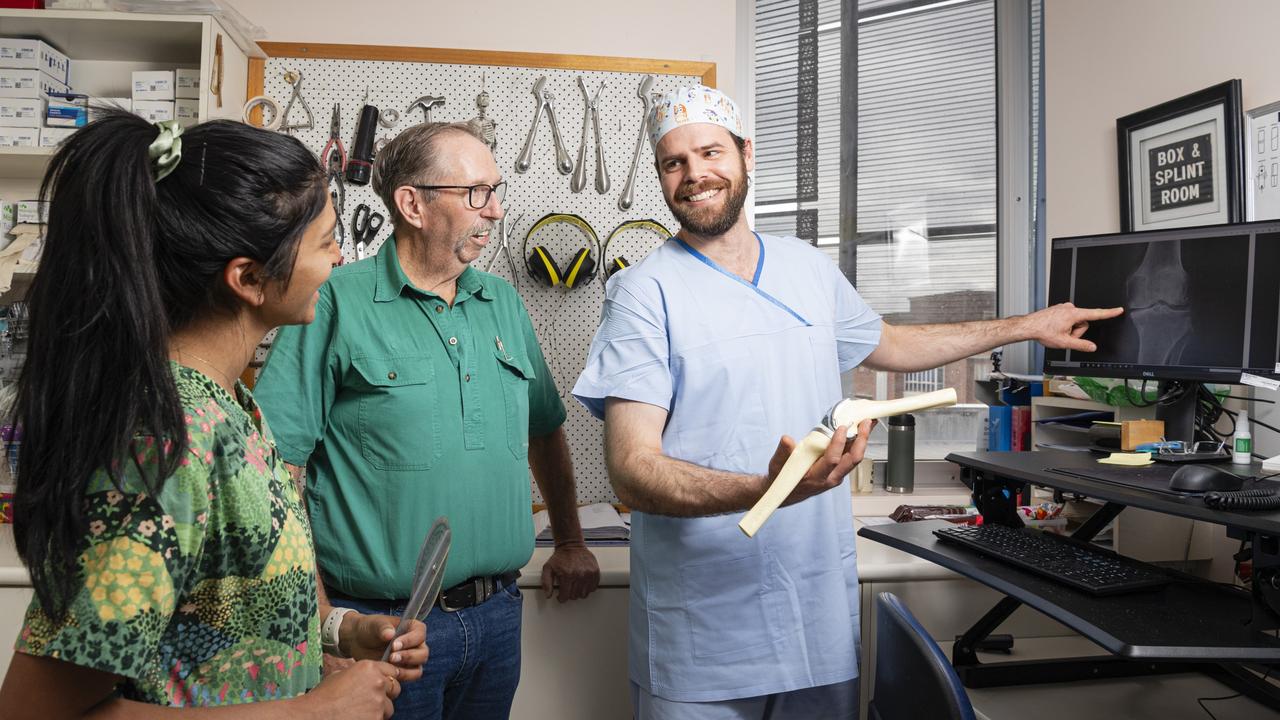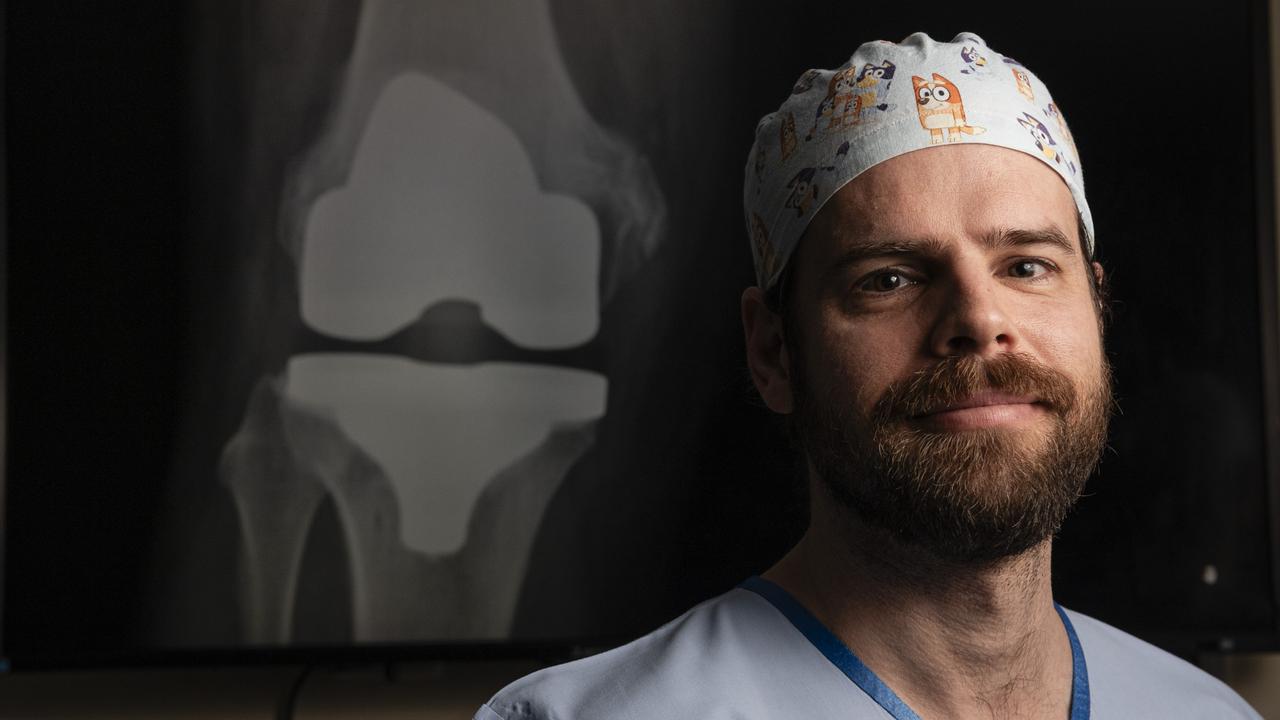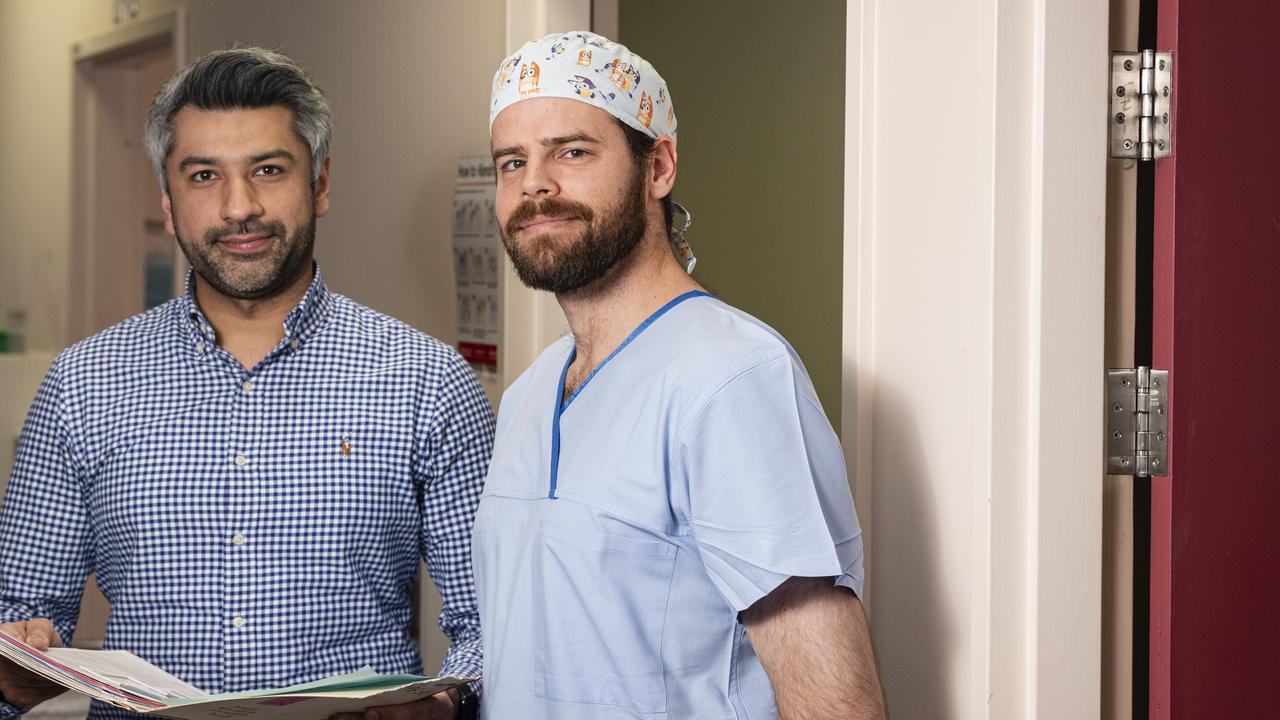Toowoomba Hospital orthopaedic specialist urges residents to lose weight to reduce joint replacements surgeries
Toowoomba’s growing obesity crisis has led to the rise of a certain type of surgery – something a leading specialist believes is completely reversible.
Community News
Don't miss out on the headlines from Community News. Followed categories will be added to My News.
A leading Toowoomba specialist says the Darling Downs’ obesity crisis is contributing to increasing rates of joint replacements — a phenomenon he says is potentially reversible with weight loss.
Toowoomba Hospital’s director of Orthopaedics Dr Chris Wall has urged residents who are overweight or obese to look at weight loss options to help avoid the need later in life for hip and knee replacements, which have risen sharply in recent years both locally and across Australia.
As of 2022, 64 per cent of adults in the Toowoomba region were either overweight or obese, according to Queensland Health statistics.
Nearly a third of adults are now obese, up from just one-fifth (21 per cent) in 2010.

Dr Wall’s comments come after a study revealed just two per cent of the nearly 500 patients who had surgeries through the Toowoomba Hospital between 2019 and 2022 lost the recommended weight (5-10 per cent of total weight) prior to going under the knife.
The study, which was completed as part of Dr Wall’s research for his PhD through the University of Queensland, found 90 per cent of the patients in the study were either overweight or obese — yet just 11 of 496 people lost the weight.
“I was surprised — I was expecting it to be higher, I would’ve thought that message would be out in the community that weight loss reduces the risks,” he said.
“We’ve already published a series of studies and shown that obesity increases the risks of you needing a replacement, and a further surgery.
“We also know from other people’s research that if patients are able to lose weight, even 5-10 per cent of their body weight, their risk of needing a replacement will decrease (but) only a small amount of them are actually losing the weight.
“We have a very high rate of adult obesity across the country and on the Darling Downs, that rate is among the highest in Australia.”

Dr Wall, who is also a fellow of the Royal Australasian College of Surgeons, said residents could potentially avoid the need for surgical intervention entirely using weight loss.
“If you lose weight prior to surgery, your surgery will be safer (but) for people in the community who are obese and have symptoms of arthritis, if they can engage in weight loss they may not need to see a surgeon,” he said.
Dr Wall said two different multidisciplinary models of care for obese patients on the waiting list could be trialled at the Toowoomba Hospital if funding was secured.
“The first is a nurse practitioner-led program for patients waiting for hip and knee replacements and that includes dietitian input, physio input and medication,” he said.
“That will be for all patients who are referred to the hospital.
“The second is a model of care focused on people who are overweight, and this will be a physiotherapy program with dietitian’s input, looking at a meal replacement program.”

Dr Wall hoped could be replicated across Australia, while the nation’s health sector struggled to catch-up with a backlog of elective surgeries like joint replacements.
“Alternative models of care are needed until public elective surgery throughput increases,” he said.
“Opportunities for intervention occur in both the primary healthcare setting at the time of GP referral, and in the hospital setting at the time of orthopaedic clinic review.
“One of the hopes is if we can demonstrate these two models of care help people improve their symptoms, these will be easily reproducible models of care in hospitals across Australia.”







